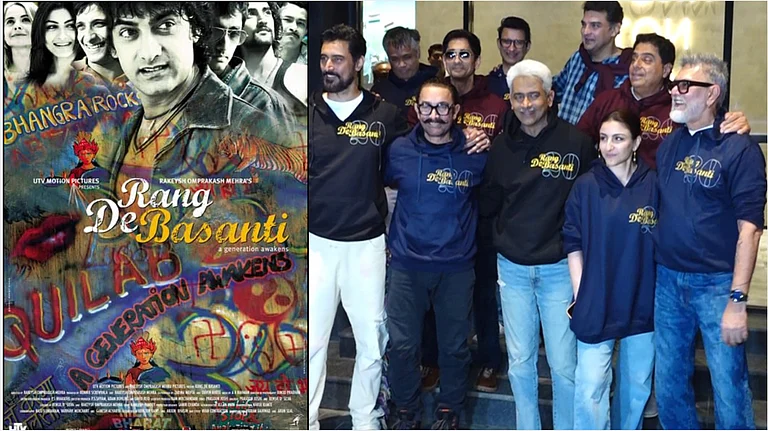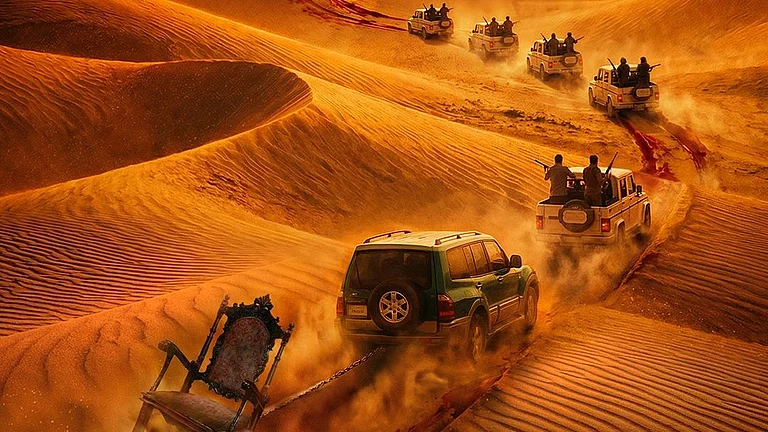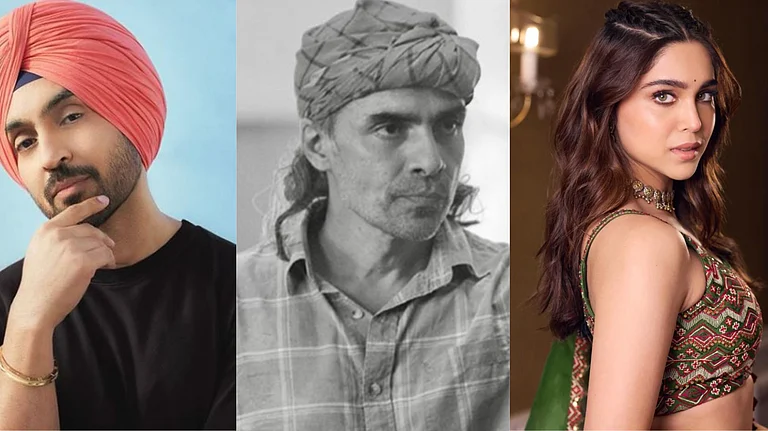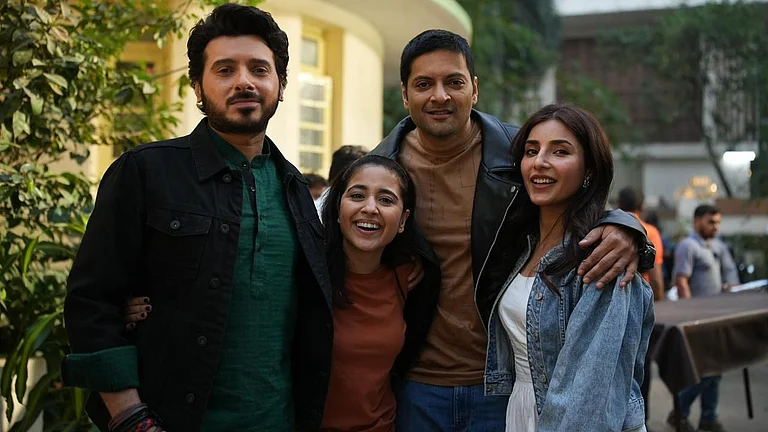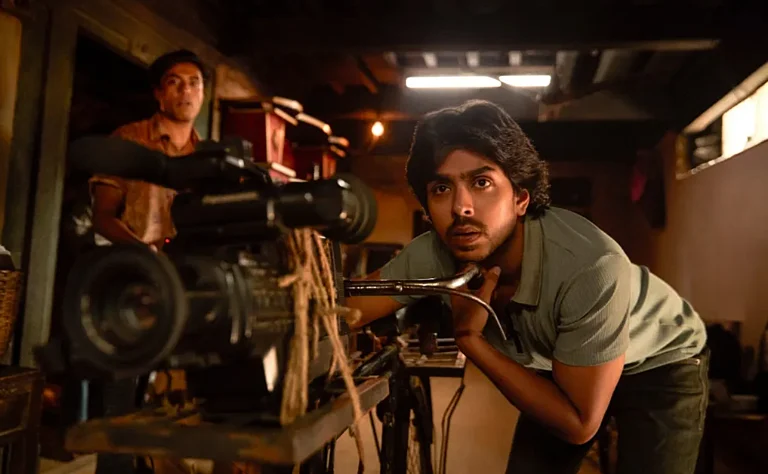
As an actor, Ali Fazal rarely gives into the temptation of repeating a performance.
In the last three years, he has essayed a diverse range of roles.
He recently turned producer with partner Richa Chadha for Shuchi Talati’s Girls will be Girls.
There’s a simple method to ascertain Ali Fazal’s merit as an actor: by noting he’s not everyone’s cup of tea. It means he rarely gives into the temptation of repeating a performance, or stock mannerisms. There’s an air of discovery in an Ali Fazal performance—we see him searching. He often finds it. It’s this innate sincerity and diligence that separates him from many of his peers.
Bursting onto the scene with a brief role in Rajkumar Hirani’s 3 Idiots (2008), Fazal’s career has hardly ever taken the obvious route. Some missteps, some wild swings, only to land on his two feet in the ‘heart’ of the Hindi heartland, with Guddu in Mirzapur (2018-ongoing). Fazal’s performance as a gangster from Uttar Pradesh has the right unpredictable mix of homegrown assurance and some filmy hamming to emerge as a truly distinct concoction. Even in its weakest season, one can hardly fault Fazal’s performance, as the haunted Guddu transforms from a loose cannon to a merciless sledgehammer.
In the last three years, Fazal has starred in a Sci-Fi short film by Arati Kadav; produced and acted in a politically-charged short film that remains unreleased; appeared in Vishal Bhardwaj's Khufiya (2023); starred in the Hollywood action film Kandahar (2023) with Gerard Butler; and starred in the latest Kamal Haasan-starrer. He was also part of an ensemble in Anurag Basu’s Metro… In Dino. His future projects include Raj & DK’s magnum-opus Netflix series Rakht Brahmand, and Lahore 1947, produced by Aamir Khan and directed by Rajkumar Santoshi. Few actors have such a diverse slate of projects.
If this wasn’t enough, Fazal—with the help of his life-partner and actor Richa Chadha—turned producers with Shuchi Talati’s Girls will be Girls, which was acquired by Amazon Prime, after premiering at Sundance film festival 2024. Fazal and Chadha also became parents a little over a year ago. It would just appear that he’s everywhere all at once.
Ali Fazal sat down with Tatsam Mukherjee for Outlook India to talk about the state of Hindi cinema, the films against his value system making the big bucks, and his relationship with money and fame. Edited excerpts:
There’s this wonderful moment in Metro… In Dino, where you tell Fatima’s character, “Nahi ho paa raha hai…” When was the last time you felt such helplessness in your own life?
As actors, I think we’ve all felt this at some point. I remember this time, when I think I’d done a couple of films, and neither had worked. It was a weird time, man. But now that I’ve tasted blood on the other side of the world, I don’t think I can possibly think of other career options. But I know people close to me who have felt this and told me, “I don’t think I’ll be able to survive till next month in this city. Maybe, I’ll go back home for a bit and try to pursue it from there.” But it hardly turns out like that. People leave, and life takes them on a completely different journey.
If the intonation feels authentic, there’s obviously the possibility that I’ve felt it in real life. Maybe even to the point of trying to save someone from dying. It’s terrifying to hear those words from a doctor. I’m sure we’ve all felt that helplessness during the pandemic—either for ourselves, or someone we know. So, maybe, subconsciously I borrowed from there.
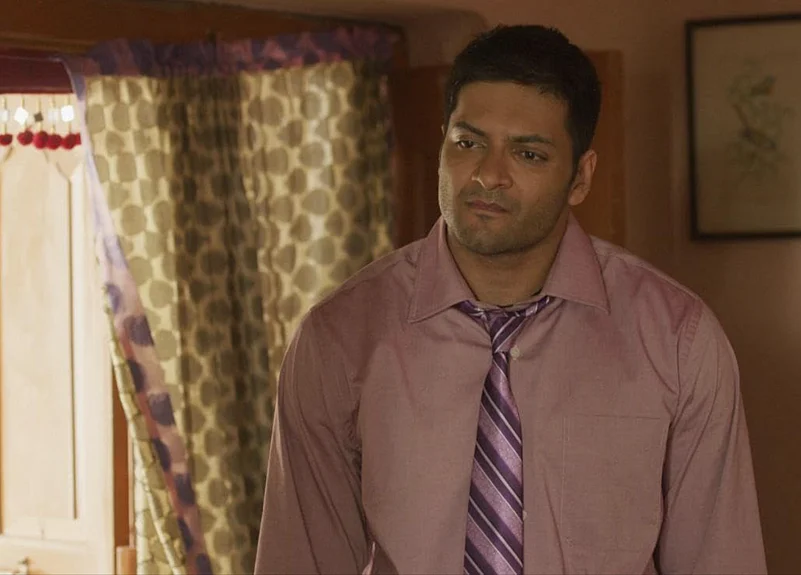
The first person in this series was Adarsh Gourav. He told me how generous you are with forwarding callbacks from Hollywood. In a competitive industry like yours, where does this security come from?
I think this security comes from the awareness that this world is really big. There are lots of people eyeing a finite number of roles, where you’re a lucky number if you get picked to do it. I’ve been told in back-to-back two auditions (in the West)—in the first they told me I was too young for a part, and in the next one they said I was too old for this part. And these are lead parts, one of which went on to become this huge franchise. I really enjoy watching Adarsh act on screen. You know some actors can almost make you wish “I should have thought of this!” Like there are a few things Raj (kummar Rao) does in comedy, with which he really floors me.
A problem over here (in Mumbai) is that we’re defined by our limitedness. Five or ten people will rule this industry and that’s probably why everyone is trying to undercut each other and get to the top. We have 6000 theatres, man. Are you kidding me? And then we cry about there not being enough theatres. That’s one problem, of course. Maybe we need more compassion.
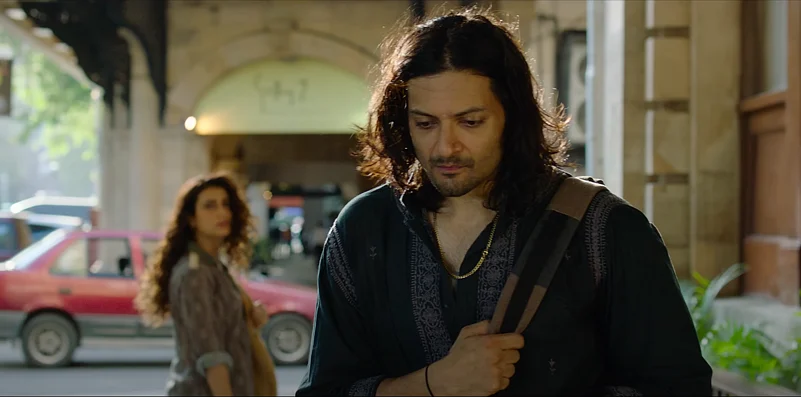
One thing I keep hearing about Bollywood is how insulated the place is and how clueless everyone is. I’m sure there are all kinds of people everywhere; But does being in the same room as people who are tone-deaf get to you sometimes?
(It happens) very often. There’s some stupid stuff that gets narrated. But I’ve started to speak out and be blunt about it. Or just try to be curious about it—someone has written something and they’re narrating it to me so they see me doing this on screen. So, maybe bring me to the same page! Make me understand.
There shouldn’t be space for mediocrity, especially if we’re making something in an era when the world’s best stuff is available to us in our homes. We’re just a button away from rejection. We’re confused because the box office directs everything over here. If something works, we make five more replicas. But I feel we need to just tell our stories, and it will end up translating.
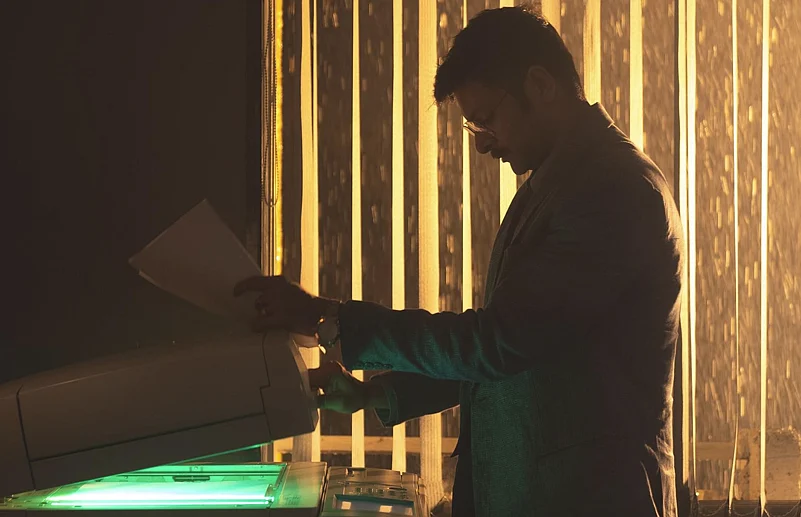
Have you ever felt like your education and sophistication have become hurdles for you in this profession?
I was just being told yesterday: “You have to go to the grounds, Ali! You have to play the game!” Apparently, there’s a textbook. It’s fine, I used to get bothered by these things earlier. But now my worldview has shifted recently.
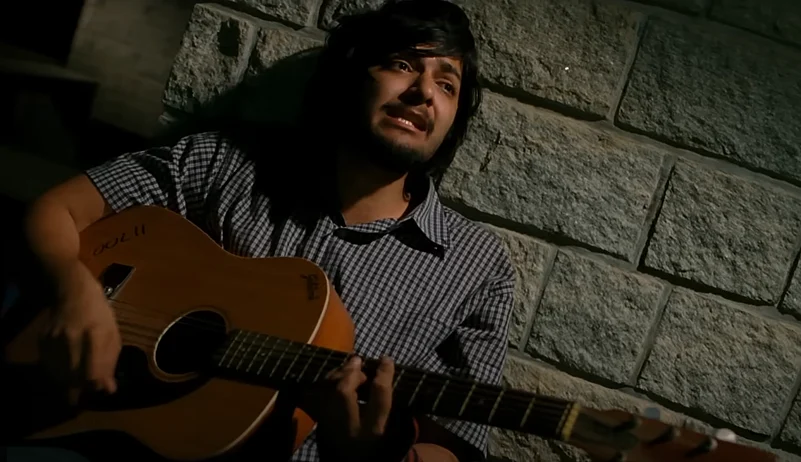
We’re in an era where we’re harking back to a certain kind of diseased, mopey hyper masculinity, which we had thought was behind us before the pandemic. Your thoughts on this?
I guess it’s a warped world after the pandemic. People don’t want to go to the theatres anymore, they want to stay home. Films are being made, we tried to make Girls will Be Girls after the pandemic; we’d like to think we succeeded. We found a home on Amazon, but for a film like this to come in theatres, I think we have some way to go. Maybe the prices are high, and the people are being discerning about what to go for—where it’s picking my wild side, or it promises to pump my adrenaline. Or it has to be really, really good cinema,but there’s an option of watching that at home too.
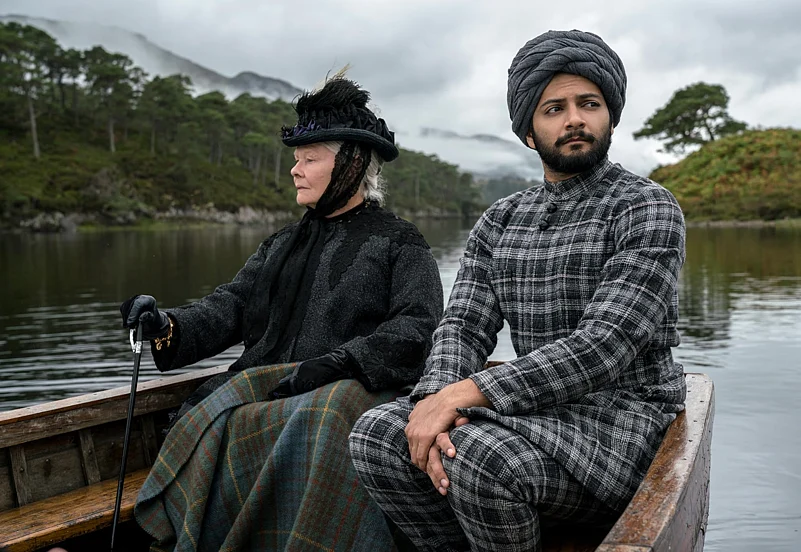
I’ve seen the tentpole shrink to just three genres: mythological, patriotism/spy film or something around a hypermasculine figure. Am I far from the truth?
I don’t think you’re way off the mark. But it’s also about what has worked at the box office. I remember there were four similar films that came after Fukrey (2013) worked. Or say, when a Stree (2018) works. I know there are six-seven horror comedies being made simply based on the fact that one film has worked. So, now the patriotism/war film has become a bracket. We had Border (1997) and Lagaan (2001) too before, but we never had six of them in the same year.
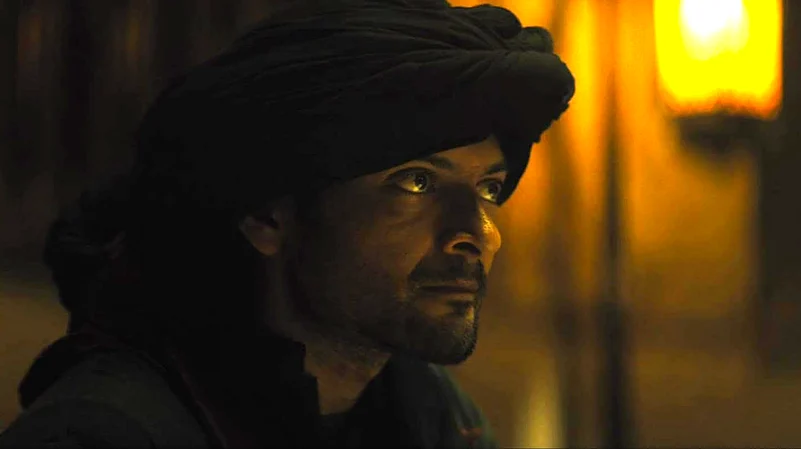
Do you struggle with the fact that films that probably go against your value system are hugely successful? Are you ever tempted?
I always feel that somebody, somewhere has done a bit of a number on the people. The audience has decided to watch it, mind you. It’s a bit like hate—which is the case everywhere. I think people get drawn in, and act like you wouldn’t imagine. We are the most unique country, and still how often do we see people fighting amongst each other? But someone else’s success doesn’t bother me. Also, I’ve never slotted myself. I don’t look down upon the big films—they have their own charm. I don’t judge people; it’s not my place.
Have you been offered films you don’t ethically and politically agree with?
Yes, and I’ve refused. I’ve just been polite.
Is it possible to preserve that wide-eyed wonder of your starting years? Or does it get contaminated over time?
I wish someone would just write this in bold letters and give it to every working actor. Each time I’m on a set, I almost feel embarrassed like a little kid. It’s pure awe for the craft. And I’ve made blunders, because I didn’t have a manager at the time. I was trying to manage multiple shoots around then, and I think I screwed up the continuity in one of the films. I guess one does get contaminated along the way, we face so many rejections—somewhere, you lose that wonder in your eyes.
How does one retain their individuality in an industry where everyone is trying to be a clone of each other?
Yeah, I think people start looking like each other, too. Like recorded literature or art—the effect it has on you. The greatest litmus test is to re-read the same text after you’ve read something else. A friend suggested we rewatch Jodie Foster’s Contact (1997). I remember watching it earlier, but you have to watch it again! It’s bizarre how bang on it is.
What’s your relationship with money, fame? Have you found your way to deal with it?
Love? Like? Both. We’ve found ways, or are finding ways. And that’s because I’m a new parent. Right now, everything is very spiritual for me—which can be borderline dangerous for someone making money, like having this intermittent feeling that I can live without it. But I should not be okay about it. It (money) is absolutely essential.








